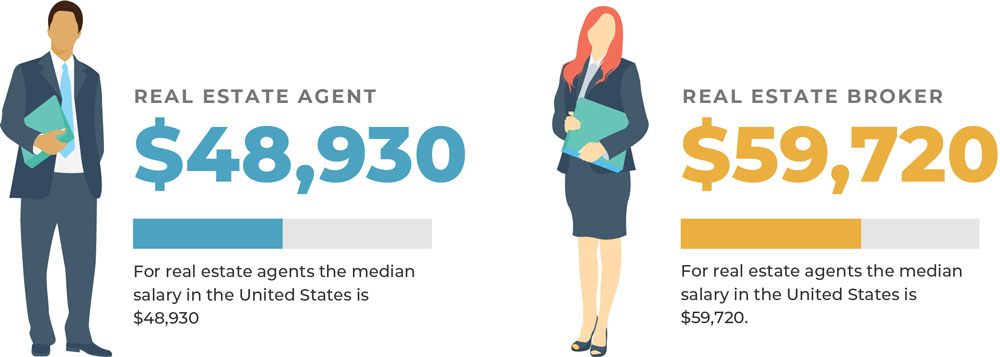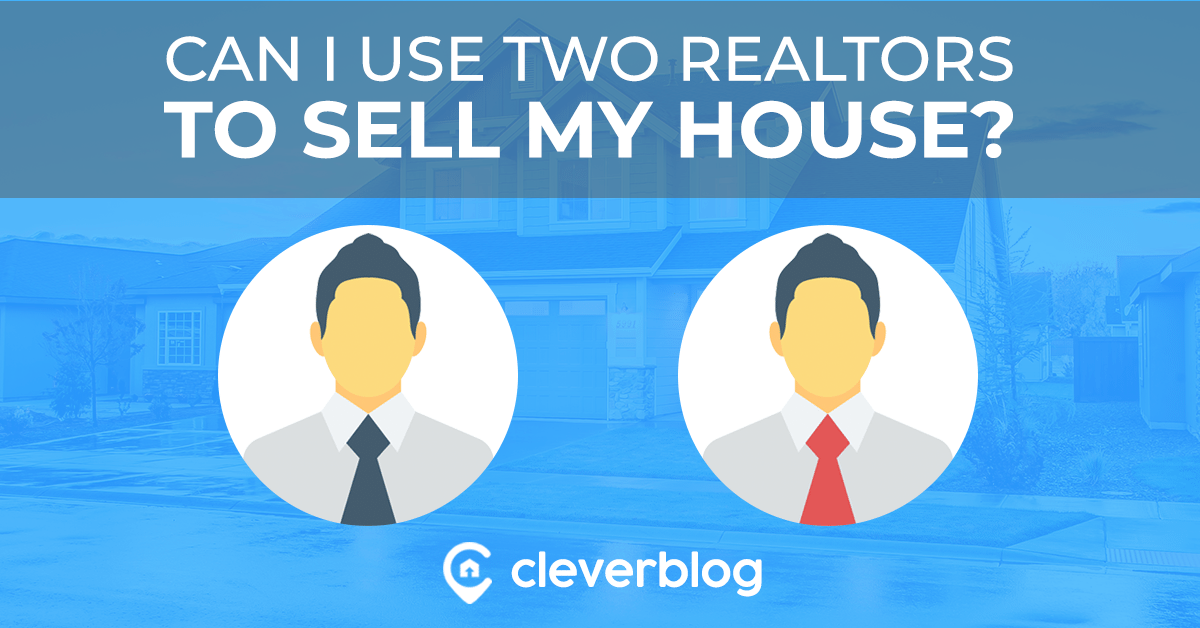
A Texas real estate license is a must if you are interested in a career as a real estate agent. The state has two types: the Broker and the Sales Agent. Each one is valid for six-months. You will need to pay a fee to obtain a license and submit your fingerprints. Also, you will need to fulfill certain qualifications such as passing a background check or taking an exam.
Texas realty licenses can be used to represent both buyers and sellers of all types real estate. But, to make a successful business out of this profession, it is necessary to learn the ropes. A good broker can help you do that. They will provide the support and training that you need in order to make you a successful broker.
The Texas Real Estate Commission (TREC) is the regulatory body that oversees the licensing process. TREC has an online course and a paper application. Once you've completed your course, you'll be ready to sit for the state exam. Online courses are much more affordable than traditional classes.

The Texas real estate license exam may not be the most exciting or entertaining part of an application process. However, it is a chance to prove your knowledge about the industry. It has 125 questions and you need to answer at least 70% of them correctly. This is not an easy task.
The National real estate licensing exam is almost identical. You'll be asked to answer a few dozen similar questions. Although not as rigorous as the Texas real-estate license exam, the question and answers system can still be challenging.
To find the best courses to get your foot in the door, you'll need to find an accredited online real estate school. These schools often combine classroom and online learning. Some of these classes will be free and others will charge a nominal fee. It is a good idea to look for courses with an introductory course and a last exam.
The process of getting your license includes a background check as well as completing an assessment on your moral character. You also have to submit your fingerprints. The first day of class is mandatory. The course will run for 30 hours.

Texas is a growing state for home buyers and seller, so getting a Texas license in real estate can prove lucrative. It's important to do your research before entering the industry. To be a successful real estate agent, you need a mentor.
Not only will you need to prepare for the Texas Real Estate License Exam, but you'll also need information about the industry's ethics and what it's like working in it. One way to do this is by reading about the different types of licensees. Brokers licensed to work as brokers can own their companies. Brokers not licensed can be hired to help others sell or lease realty.
FAQ
What are the 3 most important considerations when buying a property?
The three most important things when buying any kind of home are size, price, or location. Location is the location you choose to live. Price refers to what you're willing to pay for the property. Size refers how much space you require.
What is a reverse loan?
Reverse mortgages are a way to borrow funds from your home, without having any equity. It works by allowing you to draw down funds from your home equity while still living there. There are two types to choose from: government-insured or conventional. With a conventional reverse mortgage, you must repay the amount borrowed plus an origination fee. If you choose FHA insurance, the repayment is covered by the federal government.
Is it possible to get a second mortgage?
Yes. But it's wise to talk to a professional before making a decision about whether or not you want one. A second mortgage can be used to consolidate debts or for home improvements.
What are the downsides to a fixed-rate loan?
Fixed-rate loans are more expensive than adjustable-rate mortgages because they have higher initial costs. If you decide to sell your house before the term ends, the difference between the sale price of your home and the outstanding balance could result in a significant loss.
Statistics
- Over the past year, mortgage rates have hovered between 3.9 and 4.5 percent—a less significant increase. (fortunebuilders.com)
- 10 years ago, homeownership was nearly 70%. (fortunebuilders.com)
- This means that all of your housing-related expenses each month do not exceed 43% of your monthly income. (fortunebuilders.com)
- Some experts hypothesize that rates will hit five percent by the second half of 2018, but there has been no official confirmation one way or the other. (fortunebuilders.com)
- This seems to be a more popular trend as the U.S. Census Bureau reports the homeownership rate was around 65% last year. (fortunebuilders.com)
External Links
How To
How to Manage a Rent Property
While renting your home can make you extra money, there are many things that you should think about before making the decision. We will show you how to manage a rental home, and what you should consider before you rent it.
Here are some things you should know if you're thinking of renting your house.
-
What do I need to consider first? Before you decide if you want to rent out your house, take a look at your finances. If you are in debt, such as mortgage or credit card payments, it may be difficult to pay another person to live in your home while on vacation. Your budget should be reviewed - you may not have enough money to cover your monthly expenses like rent, utilities, insurance, and so on. ), it might not be worth it.
-
How much does it cost for me to rent my house? There are many factors that influence the price you might charge for renting out your home. These factors include your location, the size of your home, its condition, and the season. You should remember that prices are subject to change depending on where they live. Therefore, you won't get the same rate for every place. Rightmove estimates that the market average for renting a 1-bedroom flat in London costs around PS1,400 per monthly. This means that if you rent out your entire home, you'd earn around PS2,800 a year. That's not bad, but if you only wanted to let part of your home, you could probably earn significantly less.
-
Is it worth the risk? Doing something new always comes with risks, but if it brings in extra income, why wouldn't you try it? It is important to understand your rights and responsibilities before signing anything. It's not enough to be able to spend more time with your loved ones. You'll need to manage maintenance costs, repair and clean up the house. Make sure you've thought through these issues carefully before signing up!
-
Are there any advantages? So now that you know how much it costs to rent out your home and you're confident that it's worth it, you'll need to think about the advantages. There are plenty of reasons to rent out your home: you could use the money to pay off debt, invest in a holiday, save for a rainy day, or simply enjoy having a break from your everyday life. No matter what your choice, renting is likely to be more rewarding than working every single day. And if you plan ahead, you could even turn to rent into a full-time job.
-
How do you find tenants? Once you've made the decision that you want your property to be rented out, you must advertise it correctly. Start by listing online using websites like Zoopla and Rightmove. You will need to interview potential tenants once they contact you. This will enable you to evaluate their suitability and verify that they are financially stable enough for you to rent your home.
-
What can I do to make sure my home is protected? If you don't want to leave your home empty, make sure that you have insurance against fire, theft and damage. You will need to insure the home through your landlord, or directly with an insurer. Your landlord will often require you to add them to your policy as an additional insured. This means that they'll pay for damages to your property while you're not there. If your landlord is not registered with UK insurers, or you are living abroad, this policy doesn't apply. You will need to register with an International Insurer in this instance.
-
Sometimes it can feel as though you don’t have the money to spend all day looking at tenants, especially if there are no other jobs. It's important to advertise your property with the best possible attitude. It is important to create a professional website and place ads online. A complete application form will be required and references must be provided. Some people prefer to do everything themselves while others hire agents who will take care of all the details. Interviews will require you to be prepared for any questions.
-
What should I do after I have found my tenant? You will need to notify your tenant about any changes you make, such as changing moving dates, if you have a lease. If you don't have a lease, you can negotiate length of stay, deposit, or other details. While you might get paid when the tenancy is over, utilities are still a cost that must be paid.
-
How do you collect the rent? When it comes to collecting the rent, you will need to confirm that the tenant has made their payments. You'll need remind them about their obligations if they have not. You can deduct any outstanding payments from future rents before sending them a final bill. If you're having difficulty getting hold of your tenant you can always call police. They won't normally evict someone unless there's been a breach of contract, but they can issue a warrant if necessary.
-
How do I avoid problems? Although renting your home is a lucrative venture, it is also important to be safe. Consider installing security cameras and smoke alarms. Make sure your neighbors have given you permission to leave your property unlocked overnight and that you have enough insurance. You should not allow strangers to enter your home, even if they claim they are moving in next door.